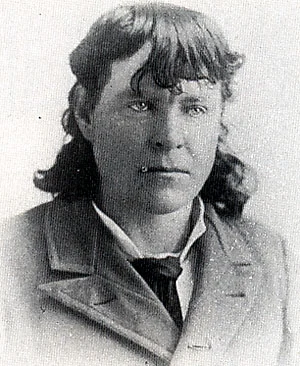Woodward Shoutouts
Archives
Temple Houston’s Last Stand: The Silver-Tongued Legend of Woodward
SIGN UP FOR OUR NEWSLETTER
Temple Houston’s Last Stand: The Silver-Tongued Legend of Woodward |
Exploring the enduring legacy of Temple Houston in Woodward, Oklahoma |
Temple Lea Houston, the youngest son of Texas hero Sam Houston, carved his own path in the annals of American history.
Born in 1860 within the walls of the Texas Governor's Mansion, he faced the tragedy of becoming an orphan by the tender age of seven.
Despite these early hardships, Houston's brilliance shone through as he became the youngest practicing attorney in Texas.
His political acumen led him to serve in the Texas State Senate from 1885 to 1889.
However, seeking to establish a legacy distinct from his father's, Houston ventured to Woodward, Oklahoma, in 1894.
It was here that his reputation as a formidable frontier lawyer truly flourished.
In Woodward, Houston's courtroom theatrics became the stuff of legend.
His most renowned performance occurred in 1899 during the defense of Minnie Stacey, a local prostitute accused of practicing her trade.
In a makeshift courtroom set within Woodward's opera house, Houston delivered the impassioned "Soiled Dove Plea."
Drawing upon scripture and painting a vivid picture of Stacey's hardships, his eloquence swayed the all-male jury, leading to a swift acquittal after just ten minutes of deliberation.
This plea has since become a cornerstone in legal studies, exemplifying the power of oratory in the courtroom.
Houston's life was punctuated with dramatic episodes that further cemented his legendary status.
On one occasion, he reportedly cleared a courtroom by firing blanks at the jury, a testament to his flair for the theatrical.
In another harrowing incident, he survived an assassination attempt when bullets intended for him were stopped by the lawbook he carried—a literal lifesaver.
His confrontations weren't limited to the courtroom; Houston was acquitted on self-defense grounds after fatally shooting fellow lawyer Ed Jennings during a heated altercation.
These events painted a picture of a man who was as much a part of the Wild West as the tales that emerged from it.
Houston's life came to an untimely end in 1905 at the age of 45 in Woodward.
His passing marked the conclusion of a life lived with intensity and passion.
Today, Woodward honors his memory, recognizing the indelible mark he left on the town and its legal history.
For those interested in delving deeper into Houston's life and legacy, the Plains Indians & Pioneers Museum in Woodward offers a wealth of information.
While the museum frequently hosts exhibits that celebrate the rich tapestry of the region's history, visitors are encouraged to check their current schedule for events related to Houston.
Additionally, the museum's archives provide a treasure trove of artifacts and documents that shed light on Houston's contributions to the community.
Woodward itself continues to be a vibrant community, hosting events that reflect its rich cultural heritage.
For instance, the upcoming Woodward Wonderfest on September 20, 2025, promises a day filled with festivities that celebrate the town's history and community spirit.
Such events offer residents and visitors alike an opportunity to connect with the town's storied past and dynamic present.
In reflecting on Temple Houston's life, one can't help but be drawn to the complexities of his character.
He was a man of profound intellect and passion, whose actions—both in and out of the courtroom—left an indelible mark on Woodward.
His legacy serves as a reminder of the enduring power of eloquence, the complexities of justice, and the rich tapestry of human experience that shapes our communities. |

